Co-Teaching and Common Core Standards
A MiddleWeb Blog

► Resist the standards and complain.
► Include the standards and get by.
► Embrace the standards and dazzle.
Can you guess which option I am clinging to? And as I continue to read and learn, I find that I am embracing the CCSS with more passion and determination than ever before. This brings me to think about my upcoming school year.
I will be co-teaching with four different co-teachers (math, science, social studies, and English). That’s a lot of content and a lot of personalities for one person (namely me) to take on, weave in, balance out, and collaborate with in order to meet the needs of all learners each day. In addition, I will be teaching solo for one period of study skills (that’s a perfect time for me to reinforce the content, process, and strategies to guide independent life-long learners).
There’s a lot to think about as I begin to plan ahead. The instructional shifts driven by the Common Core are enough to make general education teachers’ heads spin. But what does it mean for a special education teacher?
The Common Core and special education
The Council for Exceptional Children provides ongoing articles and updates (based on research) to support that students with varying abilities are capable of reaching higher levels of achievement than was once thought possible. The trick comes as we strive to update the mindsets of administrators, teachers and families (as well as the personal belief systems of the students) about the capabilities of diverse learners.
Typically, a student with a learning disability is viewed through a deficit lens. The fact that he has difficulty reading and writing becomes a priority for teachers to address. Yet, in what direction does this priority go? Is he supported in a way that encourages independent, higher level thinking (that the CCSS demands) or is he supported in a way that focuses on his deficits—emphasizing his disability and dependence?

Does this sound about right? Personally, it makes me cringe just thinking about it. Sure Andrew’s needs were met, but only for the moment. He learned to be completely dependent on others to gather information and express his thoughts. How, I ask you, could this student meet the high expectations of the Common Core? More importantly, how could he apply this to his future life and the need to become an independent learner?
Clearly some changes need to be made as we think about how we are supporting our students. For example, Andrew could be given text-to-speech and speech-to-text technology to encourage his abilities. Educators must re-think accommodations and modifications in a way that nurtures students’ strengths and abilities.
The high expectations of the Common Core Standards are exactly what our capable students need. It’s not their disability that gets in the way of their learning. It’s the way we create the learning environment that can make all the difference. I say, along with the instructional shifts of the Common Core, let’s all do our part to encourage the necessary perspective shifts that can help many more students meet the standards. (My idea of perspective shifts will be addressed in a future post—stay tuned!)
What does CCSS mean for special educators?
The attention around the Common Core’s higher expectations puts special educators in the limelight. Our entire training was based on learning how to individualize instruction. We know what it takes to specialize instruction so that a variety of students’ needs are met. Here’s the part where thunder bolts strike! Isn’t that what general education teachers are being asked to do?
Just think for a second. We have Response to Intervention (RTI) making waves throughout general education scene. And we have Universal Design for Learning being cited as an effective research-based framework for meeting the needs of all learners. The premise and principles of each framework fall solidly on the practices that special education teachers have routinely followed for many decades. It is clear that special education teachers will need to speak up and raise the roof! We need to support our general education colleagues. We have the knowledge of research-based practices that align seamlessly with the expectation that all students will gain the skills and knowledge to achieve more within the CCSS universe.
The Flip Side

The CCSS means we must add to our process expertise and be content experts as well. Sounds like a perfect fit with the expectations of the Common Core, don’t you think? Although I’m aware this can become daunting for those folks asked to teach/support subjects that may not have been their area of study—it doesn’t matter.
Everyone needs to kick it up. For special education teachers, it means investing the time to strengthen our content knowledge — and for the general education teacher it means investing the time to learn research-based practices that differentiate and deepen learning. When content and process expertise are combined, we will pave the way for achieving the high expectations of the Common Core.
Sounds like the perfect rationale for true collaboration. How are you preparing for the Year of the Common Core ahead?

















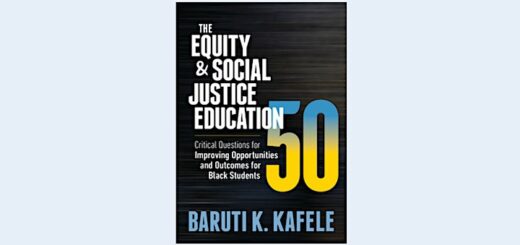
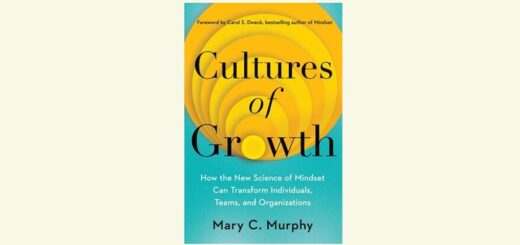
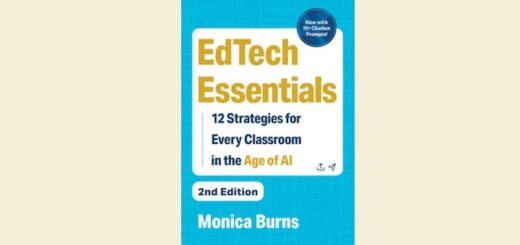
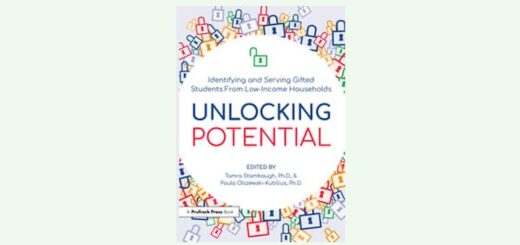


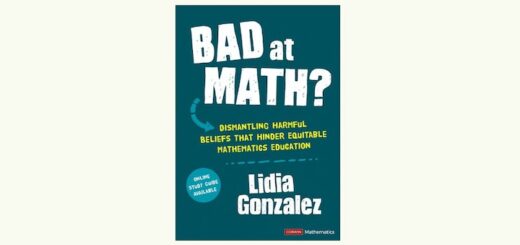




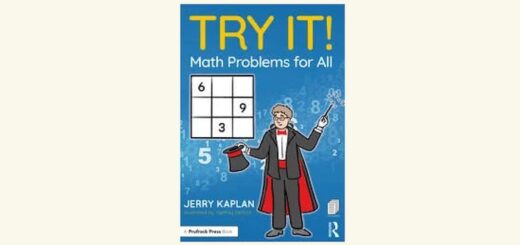


Excellent post. I just found your blog and look forward to reading much more.
Excellent information!! I am forwarding this to our entire special ed staff and our principals. I could not agree more. Thank you!!
I am happy to say that my daughter’s team use the CCSS to help my daughter achieve and use her strengths. She has blossomed in her middle school experience with a team that learned about her disability, tried suggested interventions and always took into account our needs and the needs of our daughter. As a preschool teacher/spec ed I individualize and have my students work up with support rather than down. All children have the capacity to learn and go beyond,I will never say never
Your passion is admirable and contagious. However, before I place my extremely bright, funny soon to be Kindergartner in a public school setting anywhere in any public school in the country that has adopted Common Core, I will need a little bit less “good feelings”, and more (at least one) citation from peer reviewed research that you wisely referenced above. Love it, or hate it, the reality of Common Core is that this is the largest and most comprehensive overhaul of public school education in the 150 year history of public schools in America. Lacking data of its overall efficacy (especially the viability of the “new” assessments for learning challenged children of all stripes) illuminates the hard core reality that Common Core is, for now, a experiment. I will wait for the “data” to come in before I place my special needs daughter in that situation.
Great post! As I read and study CCSS I have been saying true inclusion & coteaching are needed for SPED students to succeed. In order to meet the demands of CCSS, SPED students must be in class with their regular education peers listening, discussing, and collaborating with them. A special education teacher and regular education teacher are both needed to serve as teammates scaffolding and supporting the learning of each student.
However, due to budget cuts, oblivious administrators, and uncompromising regular education teachers we are still far from this reality. My dilemmas are I am the only special education teacher for 1st and 2nd grades. I can’t be cloned so some of my students are left without the needed supports. Additionally, regular education teachers are unwilling to share control of their room. They are focused on sticking to their curriculum maps regardless of who hasn’t mastered the skill. It seems that they undervalue the resources I bring to the table. They don’t realize the wealth of knowledge I have that can help with their most struggling learners.
So although co-teaching is beneficial for ALL students, we still are far away from that being the norm rather than the exception. With the stresses of implementing CCSS and valued added evaluations, I’m not positive we will see the needed co-teaching you describe without major a push on the national and state levels.
I was a co-teacher last year with five different teachers. I found it very difficult to find the time to plan lessons together with the general education teachers. Do you have ideas on how to do that effectively?
Thanks
John Stewart, ESE inclusion, Marion County, FL
Thanks, Michelle–and I am looking forward to hearing your insights!
Gary, I agree that this move to CCSS is worrisome as it is unproven and I applaud your questioning it for your special needs daughter. Frankly I wish more parents regardless of their child’s aptitudes and abilities were aware. I teach in a public school and teach a SDClass for children with high function Autism and I will not mainstream nor subject them to an experiment in large classroom setting with one teacher not able to differentiate for a host of reasons . Inclusion is often done so poorly our kids fail to thrive. Like NCLB with its over emphasis on assessments and assumptions there are set standards for each grade level, all kids regardless of ability or aptitude must learn the same at the same rate etc. I fear CCSS may fall into the same paradigm that all children are expected to learn at the same rate and take tests that somehow measure this new higher level thinking and our students specifically will struggle.I applaud your not jumping on this bandwagon but know teachers have very little choice in this train coming our way.
Please do share–thanks, Jim! Let’s keep this conversation going. The idea is to translate these necessary conversations into actions. I hope that you and others in you district will share your experiences around the Common Core.
Thanks for your comment!
All the best!
I find that difficult as well. For me this year, I will be able to work more collaboratively since I have the content map and all materials that the gen. Ed. Teacher has. Try to communicate before or after school so you know what to expect on a daily basis. Or try to eat lunch together 1-2 times a week .
John, thanks for your comment–It’s great to brainstorm with you.
Here’s some of my thoughts on finding planning time:
1. Reflect on the previous year. What went well? What didn’t? How can I fine tune my
co-teaching moves?
2. Explore the vast world of online resources: Google Docs, Skype, Evernote, wikis,
Edmodo, etc.
I also love http://www.planbookedu.com– it’s an online planbook with the option of sharing
with co-teachers. Imagine that! sharing a planbook with our co-teachers! That’s just
awesome, don’t you think?
3. CEC to the rescue–I find CEC to be my home base–the research is there, the ideas are there, and the forum for collaboration is there–and I never feel alone, no matter what my situation is. Here’s a link specific to our topic of planning.
Check out: http://www.smartbrief.com/07/15/13/co-teachers-your-colleagues-want-know-how-you-handle-planning-time#.UeawqBb3D-Y
4. Follow #coteachat on Twitter and engage in great co-teaching conversations.
What other ideas do you have? Perhaps something that went well when you were on that team with five teachers…
Helen, thanks for sharing. Relying on the same gen. ed. resources is a sure way to help spec. ed. teachers strengthen their content knowledge. If these resources are not given to us, then we must go get them. The maps you refer to are on the Common Core website: http://www.corestandards.org
Also, creating ongoing, consistent communication is key! Great suggestions!
Best!
Gary, thanks so much for your post. Your passion as a parent is also admirable. You demonstrate the value and necessity of ongoing communication between the home and school. You are clearly a strong advocate for your daughter–how lucky she is! As you channel that positive energy in constructive ways, you will be a continued source of strength for your daughter.
My opinion rests firmly on that “good feeling” of the Common Core. Focusing on what we as parents and teachers can do is key.
Teachers can control how they implement the Common Core to a great extent. Teachers can control how they accommodate students with special needs to a great extent. It’s all about guiding each student to be as independent as possible through the rigor of the Common Core. It is just plain amazing what learners can achieve when high expectations are set within an appropriately supportive environment.
Parents must advocate through ongoing, consistent communication with teachers. Learners can thrive when a solid bridge between home and school is maintained. This kind of collaboration will guide your daughter to be a confident, independent learner. She is so lucky to have you supporting her as she learns to be her own advocate in time.
We cannot control the new assessments, but when the instructional process and daily learning experiences are well supported along with high expectations–the assessments will take care of themselves. It’s about creating life-long learners–not once a year test takers.
All the best!
Debbie, I can’t help but wonder…is it the Common Core that worries you–or the process and what is done with the Common Core that is most worrisome? Your post sheds another light on the frustration of the Common Core–namely how it affects your students with autism. It’s true, how can we get some students to make inferences, synthesize, and evaluate complex texts when their natural abilities are so literal? I think it’s possible–on an individualized basis. It falls solidly on our ability as teachers to create learning environments that meet the individual needs of students, while nudging them beyond the point where they are. Creating those daily learning experiences that meet appropriately set high expectations is not only our focus but also our students’ right to an education in the least restrictive environment. Sadly, it’s true, inclusion is far too often done so poorly as you say. Yet with these kinds of discussions, solutions may be found. Thanks for sharing your perspective–it adds so much to our conversation!
Constance, your dilemmas are echoed around the world wherever inclusive classrooms exist–that’s just a sad fact. But, the good news is each teacher has the choice to make it the best possible environment for students. Regardless of our co-teaching situation, there are some definite coteaching moves that you can take. For instance, you must set realistic goals for yourself and ease your way into each co-teaching experience, while moving full speed ahead. Keep the communication open. You are right, the co-teaching I describe does not exist consistently on a broad general level–at least not yet (smile). We can all do what we can within each of our classes. Perhaps with these kinds of conversations, we will raise awareness, open minds, and create more positive inclusion classes–together–on a broader level. But it takes each teacher to do his part in his class, in his school, in his district–for all of his students. Thanks for adding your thoughts to this conversation. I’m looking forward to hearing more from you!
Thank you for your insight into the CC. I co-teach biology and I struggle with content knowledge. I feel like I don’t know enough of the detailed processes to be teaching the class. It’s very frustrating, not to mention I teach three resource classes of my own.
Rose, thanks for sharing your inspirational story! It is so important for teachers, the student, and parents to work as a team. Please share any specific interventions that worked–it could help others as they strive for positive experiences. Many thanks!
All the best!
Kelly, you describe a common situation for so many. It’s great that you are doing something about it. Generating conversations around finding solutions is so important–no one can do it alone. Have you identified people, websites, books, articles,etc as helpful resources for you? What about spending time with your co-teacher? You could gain content knowledge understanding as well as share your talents–it could be a win-win–what do you think?
Also, consider joining in great co-teaching discussions on Twitter–just follow the #coteachat hashtag. First formal chat will be 7/23 8-8:45 EST. it’s great to find solutions together–hope to continue this conversation–thanks for sharing!
Best!
Over the past several years I have been in the regular Ed. Classroom as a glorified para, and this year the district is actually implementing co-teaching. I’m looking forward to co-teaching in algebra, and others are going out into other classes. Finding your blog is encouraging and I look forward to reading and following. As a special Ed. Teacher any suggestions and advice are appreciated. As well as sharing my own experiences.
Christina, thanks for adding your voice! I’m so happy to hear that you will be a part of our co-teaching discussions here. I am looking forward to hearing about your experiences and insights.
Also, join a discussion on Twitter using the has tag #coteachat. It launches tonight, 7/23 from 8-8:45 EST.
I’m excited to connect more soon!
Also, does that mean we do not teach Andrew writing skills? I’m sure we do while we provide him with the tech.
Hi, navasderentas: Yes, we do teach Andrew how to become a stronger writer. For example, we can provide tech support (as you mention) to guide the pacing and ease of participation during whole class lessons as well as small group. In addition, as long as it’s appropriate for him, it’s important to include some no tech kind of supports and scaffolds to strengthen his personal writing abilities.
I have had success with daily quick writes, graphic organizers, visualization techniques, and paragraph frames to guide struggling writers. Bottom line is to provide scaffolds and supports that encourage his abilities and independent skills. Along with teacher modeling, scaffolding, and repeated practice through daily writing, Andrew can increase his personal writing skills.
Thanks for adding to the discussion!
Hi, I loved your post. I think the IEPs need to highlight the students’ strengths and not so much of their weakness. I believe every student has a strength that can be build on.
Veronica, thanks for joining the conversation! I agree, we can use students’ strengths to help them improve upon areas of need. It’s a natural process of learning and achieving. So much potential lies in the way we perceive students’ abilities…
All the best!
Elizabeth and commentators are “spot on!”
My son has “functional” autism.
Regarding CCSS such as discovering the theme and main idea, here’s something I do at home as a parent-educator. If it’s a book, not a short story, he now knows to note the main idea(s) after reading each chapter, not come to me after reading the last page.
I use Think Aloud as I read through a textbook so he learns how to find information in dense, complex text. I use cues to guide his thinking in the right direction and examples/models to picture what constitutes a theme or inference that can be generalized to all kids his age, etc.
Step 3 – when his brain is stuck on one rigid thought or feeling he can’t “get it” I tell him I’m going to do my work and give his brain some time to relax. It also gives me time to relax and reflect on why what I tried did not work as expected. Usually, he comes to me with a barely OK to good answer within 20 minutes.
John Carr you are a amazing and talented dad….and role model to us all as not only parents, but for all educators.
My professional opinion still stands regarding the misuse of adaptive CC tests on unique and creative brains that your child, as well as mine, have.
Bluntly put, our profession has yet to devise a standardized achievement test that on its own, can measure accurately our kids learning experiences. For any educator or public school administrator to say other wise is simply ignorant of test design, and the vast cognitive diversity and patterns present in kids who are “quirky learners” as we call kids on the spectrum in our clinic. (The term “disabled” is banned around here).
So until presented with data (not slick P.R.) that says otherwise, I will continue barnstorming the country with my message.
High stakes achievement tests are nothing but an exercise in experimentation on a large percentage of special needs kids….especially adaptive tests that have never been used in this manner in our nations history.
I’m “coming after” Arnie Duncan on this issue. Hard.
I have five students- two are nonverbal; one cannot walk, speak, and has only limited vision in the lower portion of one eye; one has Down Syndrome. Two of them have Autism. Academically, they are functioning somewhere between Preschool and second grade. While I support inclusion, there are times when my students have great difficulty in their general education classrooms- behavior issues arise and disrupts all learning. In KY, my students participate in Alternate Assessment- common core standards. I must make accommodations and modifications to the standard and teach it to the student. I use their mode of communication, but so many times, the standards are too difficult- especially for those who do not know their ABC’S or cannot count to five. In my next post, I will send a link to KY Alternate Assessment.
John and Gary, you bring up so many true and inspirational views and experiences! Thank you for connecting. Check out this link: http://bit.ly/15Bhwhy, which addresses the Common Core and students with autism.
Please come back and continue to share your views. Finding real solutions will only happen when those who live the realities speak up and share–so thank you!
Sheila, thanks for sharing your valuable professional experiences and adding your voice as we all search for realistic solutions.
Shelia…and to whoever is having a hard time with adapting materials for kids with significant disabilities. I agree it is hard to wrap our heads around how to give access. The best advice I can give you is to think about access as an entry point. Is there a way where we can have the student work on an entry level skill by modifying the general education curriculum. I will give you an example. I have a fourth grader with significant disabilities in typical classroom. During a vocabulary lesson they are working on big 4th grade words. :) barometer…weather…instrument etc. One of my kiddos IEP goals is to identify the letter sounds. So we write the words on index cards and highlight the first letter of each word. He repeats the word and then selects which words starts with each sound. (Which word starts with the sound “b”?). This is only one example of how we can take a complicated task and boil it down to an access point.
In this day of budget restraints, and high expectations for earning a diploma, it is often extremely frustrating and stressful to be a special education teacher in education today. I say this with 31 years in education. Bottom line…I am burned out. Upsetting to me, because I still enjoy the students every single day.
Your post left me feeling as if someone was reading, my thoughts, I am a special educator in a middle school and an constantly being pulled in fifty million directions. What I enjoyed about your post the comparison to “Freaky Friday”, the roles of special educator and general education teacher need to switch. I never thought of it like that, especially when putting the CCSS into the mix. I will definitely follow up on your posts.
S. Duffany